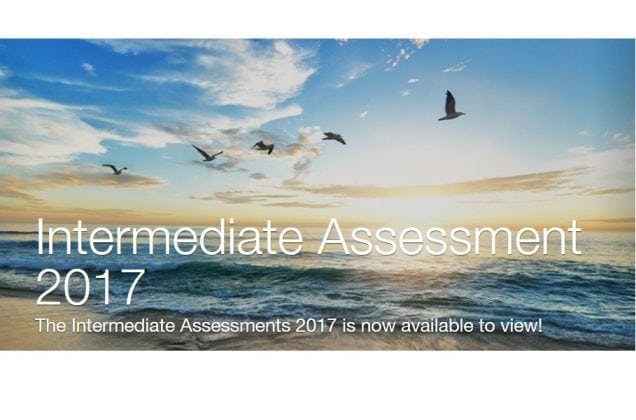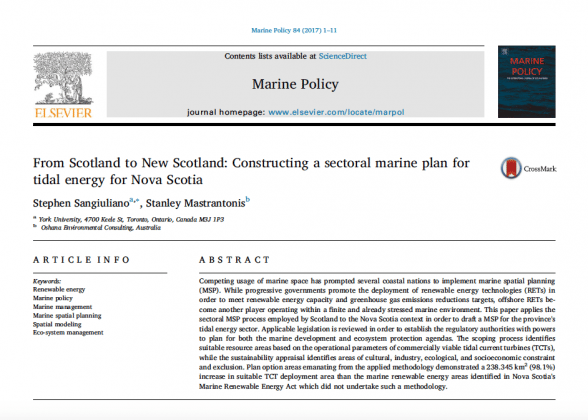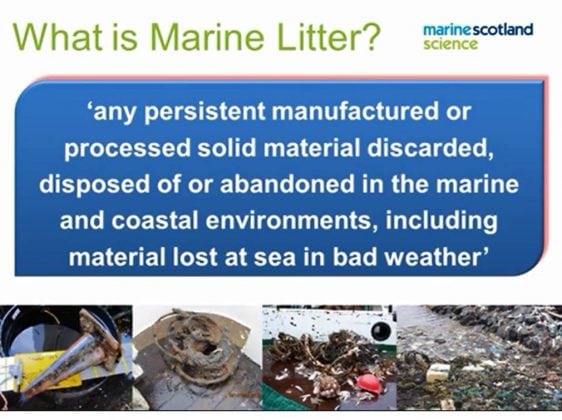Marine
-
IA2017 – New developments in the way biodiversity is assessed
11th September 2017 by Marine Scotland Communications

OSPAR is committed to protecting and conserving ecosystems and biodiversity through the management of human activities, guided by an ecosystem-based approach to management. The development of internationally coordinated biodiversity indicators is a relatively new field for OSPAR. In the Quality Status Report 2010, OSPAR assessed ten ecological quality objectives developed for the North Sea which...
-
Scottish Plans inspire Canada
6th September 2017 by Marine Scotland Communications

Scotland is well placed to take a global lead in the exploitation of marine renewable energy, boasting a substantial resource potential estimated at 25% of Europe’s tidal resource, 25% of its offshore wind resource and 10% of its wave potential. In order to sustainably develop the offshore marine renewable energy industry in Scottish waters, Marine...
-
IA2017 – Marine litter is a problem
4th September 2017 by Marine Scotland Communications

OSPAR has assessed the occurrence of marine litter in all regions within its Maritime Area, except for the Wider Atlantic where there is poor data availability. Marine litter, in particular plastic, is abundant on beaches, in the water column and on the seafloor. Marine litter also affects biota, as indicated by the levels in North...
-
IA2017 – Mixed signals for marine mammals
28th August 2017 by Marine Scotland Communications

The abundance and condition of marine mammals, as top predators, can help indicate the state of the marine ecosystem. As was also the case at the time of the last OSPAR Quality Status Report (QSR 2010), harbour seal and grey seal populations are generally stable or increasing in most assessed areas although some harbour seal...
-
IA2017 – Cooperation ensures progress
21st August 2017 by Marine Scotland Communications

The OSPAR Commission is the competent regional organisation guiding international cooperation on the protection of the marine environment of the North-East Atlantic. Through the global circulation of water and air, the North-East Atlantic is connected to, and impacted by, events in other parts of the world. As such, collaboration among governments and between government scientists,...
-
IA2017 – Discharges from offshore oil and gas installations have decreased due to OSPAR measures
14th August 2017 by Marine Scotland Communications

OSPAR has developed programmes and measures in respect of all phases of offshore oil and gas activities and undertakes annual assessments of discharges, spills and emissions from offshore oil and gas installations. Hydrocarbons and ‘chemicals’ are routinely discharged to the marine environment during offshore oil and gas operations. Assessment of the data for the...
-
IA2017 – Contaminant concentrations are decreasing, but concerns remain
7th August 2017 by Marine Scotland Communications

OSPAR countries have made significant efforts to reduce discharges, emissions, and losses of contaminants to both air and water. The effect of these efforts is clearly visible in reduced inputs to the Greater North Sea. The observed decreases in contaminant release from land-based sources and the offshore oil and gas industry show the continued progress...
-
IA2017 – Radioactive discharges from the nuclear sector have decreased
31st July 2017 by Marine Scotland Communications

OSPAR collects data on authorised discharges and environmental activity concentrations for several radionuclides. For the purpose of evaluation, OSPAR distinguishes those radionuclides that emit alpha radiation (total alpha activity) and those that emit beta radiation (total beta activity). Discharges from fuel reprocessing plants are much reduced but remain the dominant source of discharges from the...
-
The Lives and Afterlives of Plastic: A nearly Carbon-Neutral Conference
26th July 2017 by Marine Directorate Communications

Over the last month New Zealand’s Massey University Political Ecology Research Centre (PERC) has been hosting a conference to address social and environmental issues surrounding: toxicity, waste and plastic. The only difference being that this conference was a nearly carbon-neutral conference being held entirely online. While traditional conferences involve academics flying from all over the...
-
IA2017 – Fish communities show signs of recovery in some areas
24th July 2017 by Marine Scotland Communications

Fish communities form a major element of marine biodiversity and are a key feature in marine foodwebs. Fisheries can thus have a major impact on marine biodiversity. The last OSPAR Quality Status Report (QSR 2010) highlighted, among other issues, that depletion of key predator and prey species and disruption of the marine foodweb were worrying...



